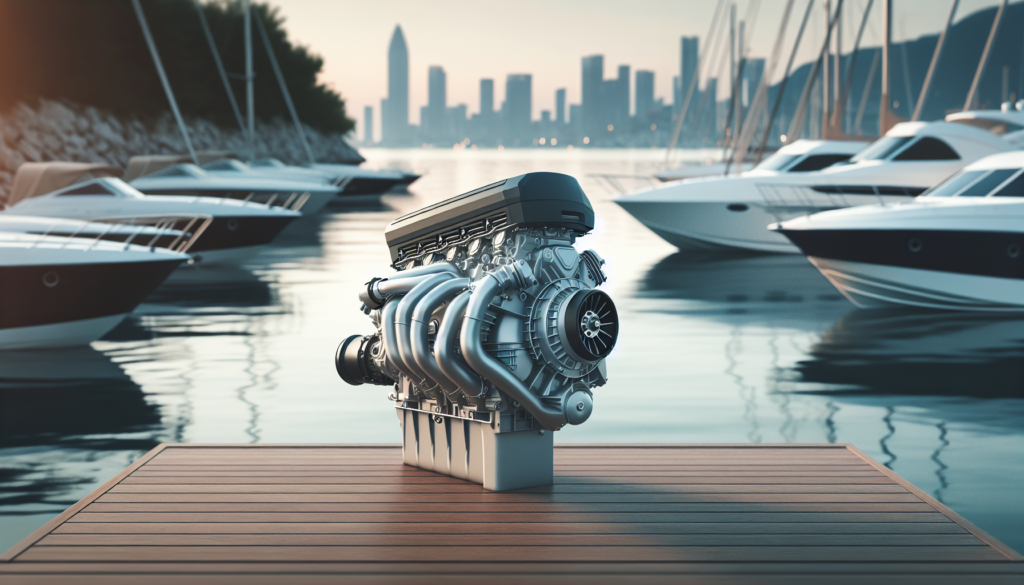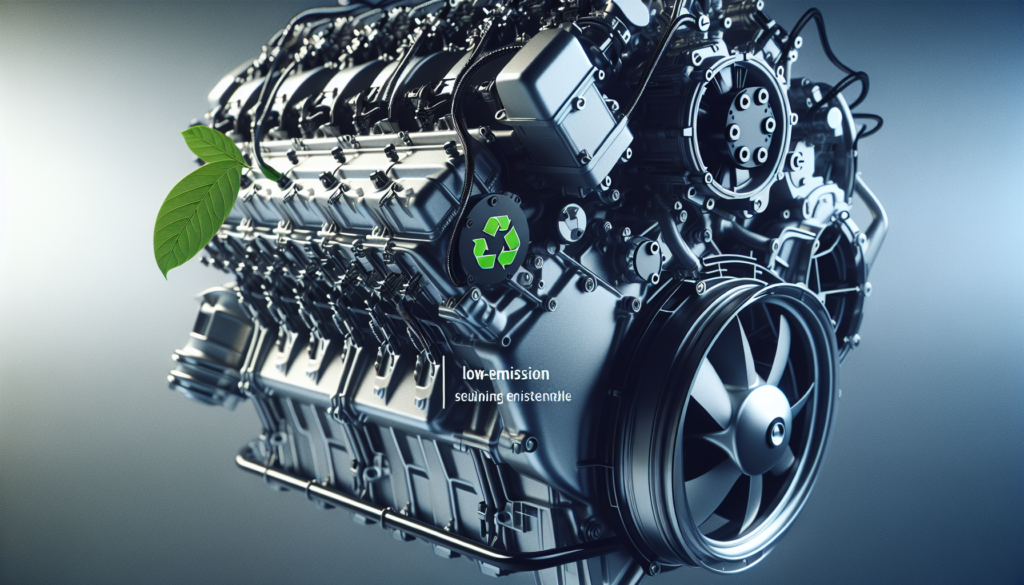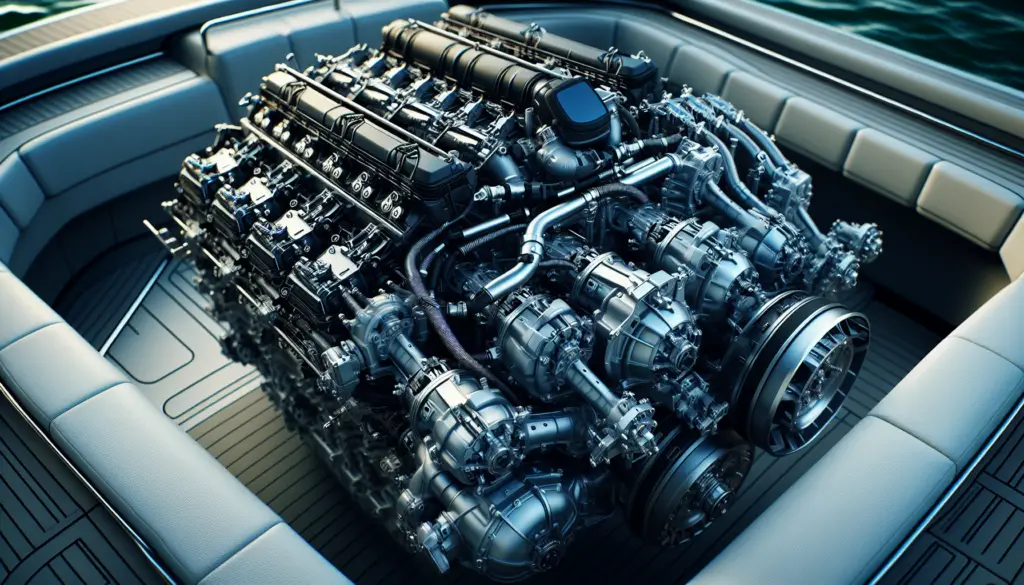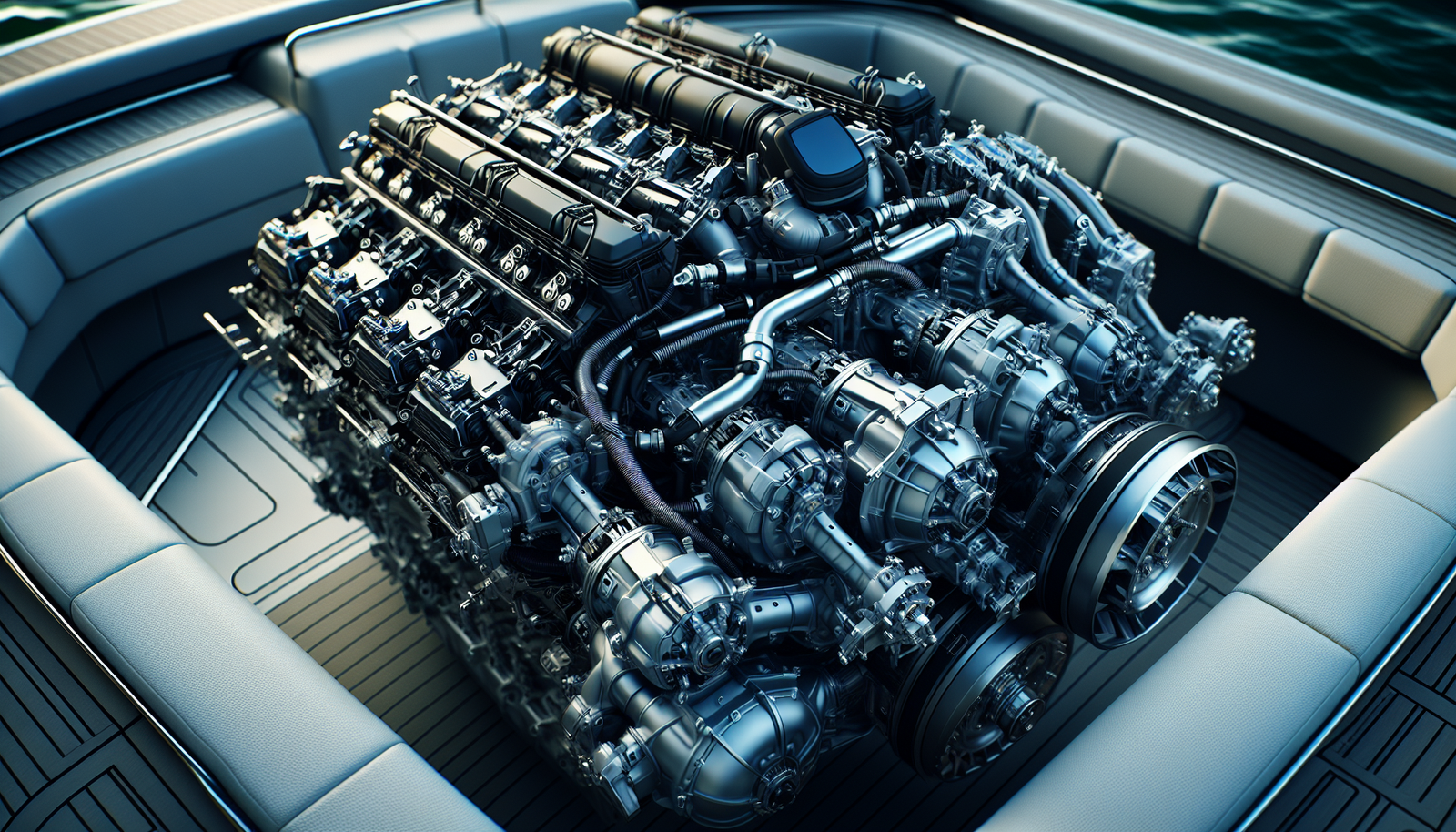As a conscientious boater, you probably strive to minimize your environmental impact while still enjoying your time on the water. You may have heard about low-emission boat engines, but aren’t sure what exactly makes one engine ‘low emission’ while another isn’t, or perhaps you’re wondering where to start in your search for an eco-friendly motor. “Buyer’s Guide To Low-emission Boat Engines” is here to guide you through this complex landscape, offering clear, practical advice to help you make informed decisions about boat engines that respect both your love of boating and the health of our planet’s waterways.

Understanding Low-Emission Boat Engines
When it comes to caring for the environment, every decision, no matter how big or small, matters. You may think you’re doing your part on land, but what about when you embark on water adventures? It’s here that low-emission boat engines come into play.
Definition of Low-Emission Boat Engines
A low-emission boat engine, quite simply, is a type of engine intended to produce fewer pollutants than traditional boat engines. These engines are designed to meet certain emission standards set by environmental regulation bodies at a global level.
Importance of Low-Emission Engines
Your decision to opt for a low-emission engine has a direct effect on the environment. Regular boat engines emit carbon dioxide, carbon monoxide, nitrogen oxides and hydrocarbon emissions. These harmful gases contribute to global warming and air pollution. By choosing a low-emission engine, you are playing a significant part in reducing the environmental impact of your ventures on water.
Functional Principles Behind Low-Emission Engines
Low-emission boat engines work on the core principle of burning fuel more thoroughly and efficiently. Through technologies like fuel injection and catalytic converters, they minimize the amount of unburnt fuel that is expelled as exhaust. This results in lower emissions, and an overall cleaner output.
Benefits of Using Low-Emission Boat Engines
Besides helping the environment, low-emission boat engines come with other added benefits.
Environment-Friendly
Simply put, less emissions equal less pollution. Choosing a low-emission engine contributes to maintaining the health of our oceans, rivers, and atmosphere.
Long-term Investment
Although the upfront cost of low-emission engines may be higher than conventional ones, they prove to be a profitable investment in the long run. The better fuel efficiency means you save on fuel costs over time, making it a financially smart choice.
Fuel Efficiency
In addition to being environmentally friendly, these engines are designed to burn fuel much more efficiently. This can really add up over time, allowing you to boat more for less money.

Types of Low-Emission Boat Engines
There are a few different types of low-emission engines for you to consider, based on your distinctive needs and purposes.
Inboard Engines
Inboard engines are housed within the hull of the boat and drive a fixed propeller. They’re typically larger and sometimes more powerful than outboard motors.
Outboard Engines
Outboard engines are attached to the outside of the boat, making them easy to install, maintain, and replace. This convenience comes at a price, however, as they’re usually less fuel efficient than inboard models.
Hybrid Engines
As cutting-edge technology, hybrid engines offer the best of both worlds. They can operate electrically at a lower speed to save on fuel, with the capacity to switch to an internal combustion engine for better power while cruising quickly.
Key Features to Look for in Low-Emission Boat Engines
There are key pointers to keep in mind when investing in a low-emission boat engine, to ensure you get maximum value for your investment.
Power Output
When choosing an engine, consider your needs. If you simply want to cruise around, a lower power output may be sufficient. But if you’re planning to pull skiers or wakeboarders, you’ll need an engine with greater power.
Fuel Type
There are multiple options like diesel, petrol or even hybrid engines. Diesel engines usually have higher fuel efficiency and longevity, yet might be bulkier and heavier.
Engine Displacement
Engine displacement, measured in cubic centimeters (cc), indicates the engine size. A higher capacity engine provides more power, but can be less fuel efficient.

Leading Manufacturers of Low-Emission Boat Engines
There are several reputable manufacturers in the industry to choose from.
Mercury Marine
An industry leader for more than 75 years, Mercury Marine offers low-emission outboard engines that are popular for their lightweight build and superior fuel efficiency.
Yanmar
Yanmar offers various inboard diesel engines optimized for maximum fuel efficiency and minimal emissions.
Honda
Known for manufacturing efficient outboard engines, Honda boasts a great range of low-emission options.
Torqeedo
A leader in electric boating technology, Torqeedo offers zero-emission outboard engines.
Evinrude
Their E-TEC outboard engines are well-regarded for their innovative, low-emission technology.
Investigating Regulatory Standards for Boat Engine Emissions
When considering low-emission boat engines, it’s good to be aware of the various regulatory standards in place.
EPA Standards
The Environmental Protection Agency in the United States has set a benchmark that marine engines need to comply with to be considered low-emission.
European Union Regulations
The EU has different tiers of emission standards for pleasure boats, which manufacturers must meet.
Tier 3 Emission Standards
Internationally, the Tier 3 emission standards specify engine performance requirements needed to reduce nitrogen oxide and particulate matter emissions.

Calculating the Cost of Low-Emission Boat Engines
While purchasing a low-emission boat engine, consider the total cost of ownership, not just the initial outlay.
Initial Purchasing Cost
Low-emission engines might be more costly upfront, but it’s worth considering the long-term value.
Cost of Routine Maintenance
All engines require maintenance but some types require more care and thus, higher costs.
Fuel Costs
Fuel efficiency directly impacts the much you’ll spend on fuel.
Resale Value
An engine in good condition and with lower emissions often holds a greater resale value.
Maintaining Your Low-Emission Boat Engine
Proper maintenance is key to making sure your engine lasts longer and performs at its best.
Regular Servicing
Service your engine regularly following the manufacturer’s instructions.
Cleaning Instructions
Removing salt and grime is essential after each use to maintain the overall health of your engine.
Proper Fuel Usage and Storage
The right choice of fuel, stored properly, can greatly influence the efficiency and lifespan of your engine.
Transitioning from Traditional to Low-Emission Boat Engines
There are a few critical points to consider before making the switch to a low-emission engine.
Possible Challenges and Solutions
Transitioning comes with its royalties, like understanding new technologies or higher investment costs. However, the long-term benefits outweigh these initial challenges.
Cost-benefit Analysis
With improved fuel efficiency, lower maintenance costs, and better resale value, low-emission engines often offer a great return on investment.
Environmental Impact Analysis
One can’t ignore the positive environmental effects. Shifting to low-emission engines reduces your carbon footprint significantly.
Where to Purchase Low-Emission Boat Engines
Locate the right place to purchase your engine based on convenience, reputation, and cost.
Online Retailers
Online platforms offer a wide range of options and competitive prices.
Local Boats and Marine Supply Stores
Local stores offer the chance to visually inspect and ask questions directly to the seller.
Direct from Manufacturers
Some manufacturers sell directly, offering you the opportunity to customize your order based on your needs.
Used Engines Market Considerations
Used engines are a great budget-friendly option but be cautious about potential wear and tear.
Reducing emissions is every human’s responsibility. As a boater, you can play your part in preserving the planet by investing in a low-emission boat engine.

